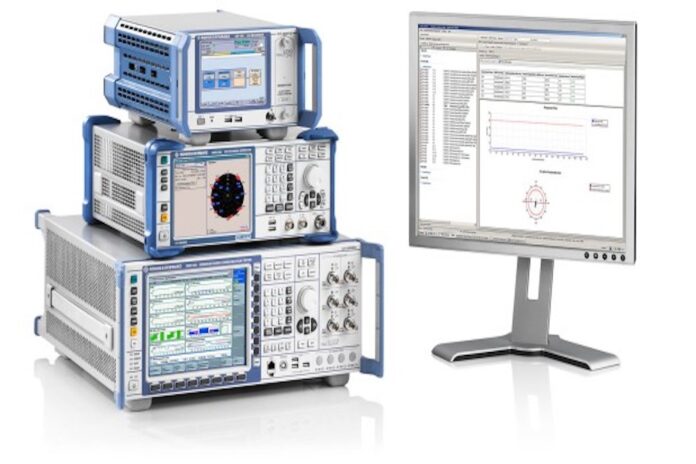R&S system knows exactly where smartphones stand on regulations
Rohde & Schwarz has won the first stage in a race to meet a new EU regulation on the sale of smartphones which comes into force in just five weeks. It is first to market with a testing system that all phone makers will desperately need. The logic of the new EC diktat is that 112 distress calls can instantly tell the emergency services exactly where the phone owner is coming from so first responders get to the scene ASAP. The best way to achieve this is to ensure each device complies with Galileo, Advanced Mobile Location (AML) and Wi-Fi positioning systems.
Don’t worry R&S has got this
From March 2022 all smart phones sold in the common market must support caller location for 112 emergency calls. Manufacturers might already do this as a matter of course, but proving their veracity is another story since there is no such testing equipment. This could create an unintended barrier to entry and testing equipment makers were in a race against time to provide one. Which Munich-based R&S has won with the help of certification partner Cetecom.
EC Rider
In order to comply with this regulation manufacturers must prove their products meet a complicated range of criteria set out in sometimes confusing EC documentation. The devices must be compliant with several positioning systems stipulated by the EC. Certification service provider Cetecom has started first E112 testing using the R&S test sequences. The EU’s Delegated Regulation (EU) 2019/320 is a supplement to the Radio Equipment Directive (RED) 2014/53/EU which defines that 112 emergency calls must provide caller location information to emergency services in a fast and accurate way, to make sure first responders can arrive at the site of an accident quickly.
Trade barrier overcome
Instead of a harmonised standard, a guideline document from the EC recommends the testing procedures for Notified Bodies, who support the smartphone vendors in the conformance assessment procedure. Compliance with Galileo, Advanced Mobile Location (AML) and Wi-Fi positioning will be mandatory.
Rohde & Schwarz says decades of experience in providing RED regulation compliance hardware and software has enabled it to write a software extension to its R&S TS-LBS location-based services test system before everyone else. Comply with an EC guideline document and the upcoming ETSI standard TS 103 825 for AML protocol testing is a rare feat of patience and endurance.
Technicalities
Rohde & Schwarz said it collaborates with leading Notified Bodies and test houses to speed up the availability of the test solution. In its new system the cellular network is emulated by the R&S CMW500 wideband radio communication tester, while the dual-frequency E1+E5 GNSS signal for Galileo system is generated by an R&S SMBV100A vector signal generator. The automation software used in the test setup ploughed through all the test cases described in the EC guideline and executed the automatically to ensure unified, fast and repeatable results.
Team with Cetecom
“We were quick to respond to the new requirements by the EC due to our pursuit for a safer and connected world,” said Alexander Pabst, VP of market segment wireless comms at Rohde & Schwarz. Pabst praised the team work of trusted partner Cetecom. “We appreciate this opportunity to use the test and measurement knowledge of Rohde and Schwarz, because having the E112 caller location test solution available early on is a significant step for us,” said Cetecom MD Jens Passe.



